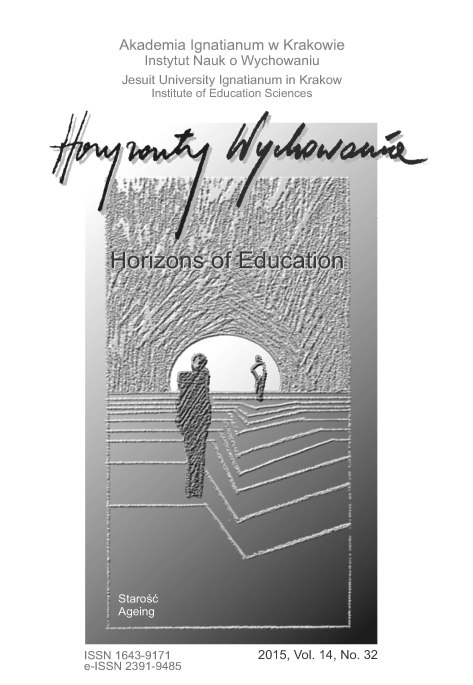Humanistyczny wymiar pracy w perspektywie nauczania Kościoła katolickiego
Humanistic Dimension of Work in the Perspective of the Teaching of the Catholic Church
Author(s): Henryk SkorowskiSubject(s): Christian Theology and Religion, Sociology
Published by: Uniwersytet Ignatianum w Krakowie
Keywords: human being; work; dignity of work; workers' rights; humanism of work
Summary/Abstract: Doświadczenie pracy jest czymś charakterystycznym tylko dla człowieka. Jest tym czynnikiem, który wyróżnia go od reszty stworzenia. Z tym powszechnie ludzkim bytowaniem, jakim jest praca, wiąże się między innymi wielki problem jej humanizacji. Jest to dziś kwestia o ogromnym ciężarze gatunkowym nie tylko w dziedzinie praktycznej, ale także teoretycznej, domagająca się również analiz naukowych szczególnie w dziedzinie etycznej. W humanizacji pracy chodzi przede wszystkim o to, aby zarówno sama praca, jak i jej wykonywanie było na miarę wielkości człowieka, który zawsze pozostaje i musi pozostać jej podmiotem. W niniejszym artykule na humanistyczny wymiar pracy w perspektywie nauczania Kościoła katolickiego spojrzymy w trzech aspektach: 1. Praca jest podstawową powinnością moralną człowieka. Wynika ona ze świadomie podjętego przez człowieka powołania. 2. Jeśli praca ma być dla człowieka jego fundamentalnym powołaniem, to musi spełniać określone wymagania - musi być pracą godną człowieka. W tym wyraża się jej humanizm. 3. Humanizm pracy wyznacza kilka zasadniczych elementów: podmiotowość człowieka w całym procesie pracy, odpowiednie warunki jej wykonywania, jej celowość oraz katalog należnych osobie praw w dziedzinie pracy. The experience of work is characteristic of human beings. It is this factor that distinguishes human beings from other creatures. Work, common human living, is connected (among other things) with the problem of its humanization. It is a current issue of great weight not only in practical domain, but also theoretical, which requires scientific analyses especially within the scope of ethics. The humanization of work assumes that both the work itself and doing work are worthy of a human being, who always is and has to remain its subject. The following article will look at the humanistic dimension of work in the perspective of the teaching of the Catholic church in three aspects: 1. Work is a basic human moral duty. It results from a vocation consciously undertaken by a human being. 2. If work is to be a fundamental vocation for a man, it must satisfy certain requirements - work must be worthy of a man. It is in this aspect that its humanism is expressed. 3. Humanism of work is determined by a number of essential elements: human subjectivity in the whole process of work, appropriate working conditions, purposefulness of work and the whole catalogue of human rights to the field of labour relations.
Journal: Horyzonty Wychowania
- Issue Year: 14/2015
- Issue No: 30
- Page Range: 113-131
- Page Count: 19
- Language: Polish

